As a BetterHelp affiliate, we receive compensation from BetterHelp if you purchase products or services through the links provided
Beach therapy has recently gained popularity as a natural and effective way to improve mental well-being. The concept revolves around the idea that spending time at the beach, surrounded by the soothing sounds and sights of waves, sand, and the unending horizon, can significantly positively impact one’s psychological health. This relaxation and healing approach may transform lives, especially with professional guidance from mental health practitioners or coaches.
The beach’s serene environment encourages the mind to unwind and release stress and worries, making space for mindfulness and self-reflection. Furthermore, its connection with the healing power of nature helps individuals confront challenges related to anxiety, depression, and trauma. Spending time in this peaceful setting can uncover new perspectives, strategies, and insights that promote personal growth, leading to a more fulfilling life.
A crucial aspect of beach therapy is the exploration of practical techniques that can be applied to everyday life, translating an enjoyable vacation experience into long-lasting change. To ensure the effectiveness of this method, it is essential to seek the expertise of trained specialists who can guide participants through the process, tailoring approaches to suit individual needs. This unique combination of relaxation, self-discovery, and professional guidance makes beach therapy a promising option for those seeking to revolutionize their approach to personal wellness.
Key Takeaways
- Beach therapy combines the healing power of nature with professional guidance for mental well-being.
- Spending time in a coastal environment encourages mindfulness and provides effective stress relief.
- Practical techniques from beach therapy can lead to lasting personal growth and transformation.
 Understanding Beach Therapy
Understanding Beach Therapy
Beach therapy is a form of therapy that utilizes the calming atmosphere of beach environments to promote mental and physical wellness in individuals. In this approach, you are exposed to the coastal environment’s sights, sounds, and scents, which can help reduce stress, improve mood, and boost physical activity levels.
You’ll be immersed in a unique sensory experience as you engage in beach therapy. The sound of waves crashing gently on the shore, the feel of sand under your feet, and the sight of the vast ocean horizon can all have calming and restorative effects on your mind and body. In addition, breathing in the fresh sea air can also provide a sense of rejuvenation and enhance the overall healing experience.
Some key aspects of beach therapy may include:
- Nature walks along the coastline, where you can engage with the surrounding environment and deepen your connection with nature.
- Meditation as you sit or stand near the water’s edge, allowing the ebb and flow of waves to guide your breath and focus your thoughts.
- Physical activities such as swimming, paddling, or even beach yoga can help improve physical fitness and improve your mental health.
- Creative expression through activities like drawing, painting, or journaling, where you can constructively channel your emotions and thoughts, surrounded by the inspiring beach landscape.
Beach therapy can benefit those struggling with mental health concerns such as anxiety, depression, or stress. By providing a serene environment for healing and self-reflection, beach therapy can help you gain insights into your emotions, thoughts, and behaviors, paving the way for positive change.
In conclusion, beach therapy is a holistic and natural approach to enhancing mental health and well-being. By immersing yourself in the captivating environment of the beach, you can benefit from its restorative qualities and experience personal growth while fostering an intimate connection with the beauty of nature.
 The Role of the Mind in Beach Therapy
The Role of the Mind in Beach Therapy
Mindfulness at the Beach
When you visit the beach, one of the major contributors to the therapeutic effects you experience is mindfulness. The beach setting naturally encourages you to focus on the present moment, which helps alleviate stress and anxiety. Here are some aspects of beach therapy that promote mindfulness:
- Soothing sounds: The rhythmic sound of waves crashing on the shore appeals to your senses and helps you concentrate on your surroundings.
- Physical sensations: The feeling of sand between your toes, the warmth of the sun, and the cool water encourage you to immerse yourself in the present.
- Visual scenery: The vast expanse of the ocean and the calming horizon offer a gentle reminder of the world’s natural beauty, allowing you to escape from overwhelming thoughts.
Engaging in beach mindfulness helps ease your mind, paving the way for deeper relaxation and mental rejuvenation.
Neuroscience of Beach Therapy
Beach therapy offers a change of scenery and significantly impacts your brain. Various elements of the beach setting contribute to positive changes in your mental state. Let’s explore some of the neuroscience behind beach therapy:
- Reduced stress: Spending time at the beach exposes you to negative ions, which are believed to help balance serotonin levels, a mood-related neurotransmitter. This effect can alleviate feelings of depression and anxiety.
- Cognitive restoration: The sights, sounds, and sensations of the beach can act as a mental reset, allowing your brain to recover from everyday stressors and replenish cognitive resources.
- Physical exercise: At the beach, you often engage in activities like swimming, walking, and playing, which trigger the release of endorphins. These hormones help improve your mood and reduce symptoms of stress and anxiety.
Incorporating beach therapy into your self-care routine can have lasting positive effects on your mental health, as your mind plays a crucial role in experiencing the benefits of this relaxing and rejuvenating environment.
The Healing Power of Nature
The Sea and Sand Impact
The beach is more than just a place for fun and sunbathing. The sea and sand have an amazing therapeutic effect on your mind and body. Spending time near the ocean can reconnect with nature and experience peace and relaxation.
The soothing sound of waves crashing onto the shore helps reduce stress and anxiety while the sand exfoliates and gently massages your feet as you walk. The negative ions released by the sea enhance your mood and help improve your mental well-being.
Beach Walks for Healing
Taking a leisurely walk along the shoreline is an excellent way to reap the healing benefits of nature. The sea breeze and rhythmic sound of waves create a calming atmosphere that promotes mindfulness and deep relaxation. In addition, walking on sand helps strengthen your foot and leg muscles, as it provides resistance compared to walking on a solid surface.
Here are a few tips to make your beach walks more enjoyable and beneficial:
- Leave your electronic devices behind to immerse yourself in the experience fully.
- Choose a quiet time of day, like early morning or late afternoon, when the beach is less crowded.
- Try walking barefoot to absorb the earth’s energy, known as “grounding” or “earthing.”
- Pay attention to your surroundings, taking in the beautiful scenery and the soothing sounds of the sea.
Vitamin D and Skin Benefits
Spending time at the beach exposes your skin to natural sunlight, a great vitamin D. Your body needs vitamin D for strong bones, a healthy immune system, and mood regulation. Just wear sunscreen and avoid overexposure to the sun to protect your skin from potential harm.
Moreover, the seawater is rich in minerals that can benefit your skin. The salt content in seawater works as a natural exfoliator, helping remove dead skin cells and stimulate fresh, healthy skin growth. Additionally, it contains minerals like magnesium and potassium that can aid in reducing inflammation and promote healing for various skin conditions.
Enjoy your time at the beach responsibly and soak nature’s healing powers, enhancing your overall well-being.
Practical Techniques in Beach Therapy
Intro to Beach Therapy Session
Beach therapy is a therapeutic approach where you utilize the calming environment of the beach to achieve mental and emotional well-being. It’s a great way to unwind and let the natural surroundings work magic on your senses. To start your beach therapy session, find a quiet spot on the sand that makes you feel comfortable. Aim for early mornings or late evenings when fewer people are around. Make sure you give yourself ample time so you don’t feel rushed.
 Meditation at the Beach
Meditation at the Beach
Meditation is a powerful technique for developing mindfulness and relaxation. Here are some steps to practice meditation at the beach:
- Find your posture: Choose a sitting or lying position that feels natural and comfortable. You can sit cross-legged on a towel, lie on your back, or use a beach chair for support.
- Focus on your breath: Close your eyes and bring your attention to your breath. Notice the sensation of the air coming in and out of your body as it travels through your nostrils or over your lips.
- Engage your senses: Invite the beach’s sounds, smells, and sensations to become a part of your meditation. Listen to the waves crashing, feel the sun’s warmth on your skin, and breathe in the salty air.
- Be mindful of your thoughts: As thoughts arise, let them pass like clouds in the sky without judgment or attachment. Gently bring your focus back to your breath and engage your senses.
Practice this meditation for 10-20 minutes or as long as you feel comfortable.
Beach Exercises
Beach exercises provide a fun and refreshing way to work out while reaping the therapeutic benefits of the beach. The sand offers some resistance, making your exercise slightly more challenging and engaging. Here are some beach exercises to consider:
- Walking or jogging: Go for a walk or a jog along the shoreline. The soft sand will provide a low-impact workout and strengthen your legs.
- Yoga: Bring a yoga mat or a beach towel, and practice some of your favorite poses. The wave’s sound, and the sand’s feel will add a unique dimension to your practice.
- Swimming: Swimming in the ocean or jumping in the waves can be an invigorating exercise that works your whole body.
Remember to stay safe and be mindful of your surroundings. Enjoy your beach exercises while absorbing the beach’s peaceful, calming energy.
 Beach Therapy and Life Changes
Beach Therapy and Life Changes
Counseling at the Beach
Imagine enjoying the soothing sound of waves, the warm sun on your skin, and the calming scent of the ocean while discussing your thoughts and feelings. Beach therapy incorporates the natural healing elements of the beach environment with traditional counseling techniques. Through this approach, you’ll experience relief from stress and negative emotions and develop a new perspective on your life.
- Boost interpersonal relationships: Beach counseling sessions can help you work through communication problems, trust issues, and other relationship obstacles.
- Address life changes: Whether experiencing a career transition, moving, or dealing with a loss, beach therapy can provide a serene space for self-exploration and decision-making.
Trauma Management at the Beach
Healing from trauma can be an incredibly challenging process. Beach therapy provides a soothing and peaceful atmosphere that promotes relaxation and a sense of safety, which can be a highly beneficial part of your recovery journey.
- Sexual abuse: If you’re struggling with processing the emotions and memories associated with past abuse, beach therapy can offer a compassionate and comforting environment for sharing your story.
- Traumatic incidents: Whether it’s a car accident, a natural disaster, or a violent act, recovering from trauma can take time. Beach therapy encourages gentle self-reflection and provides a calm setting for working through the trauma and regaining emotional stability.
Incorporating the healing power of the beach into therapy offers a unique, refreshing, and effective way to address life changes, counseling needs, and trauma management. By embracing the tranquility of the beach, you can promote personal growth and well-being, ultimately transforming your life.
The Impact of Vacations
The Best Beach Vacations
Beach vacations are a fantastic way to unwind and disconnect from your daily routine. The best beach vacations include Bali, Maldives, Hawaii, or the Caribbean. When deciding on the perfect getaway, consider factors such as the time of year, the types of activities you enjoy, and the level of tranquility you seek.
- Bali: Known for its picturesque landscapes, Bali offers a combination of relaxation and adventure. Indulge in self-pampering at a luxury resort or explore the island’s rich culture through temples and traditional ceremonies.
- Maldives: With crystal clear waters and over-the-water bungalows, the Maldives epitomizes a romantic beach getaway. It’s also an ideal destination for snorkeling and diving enthusiasts.
- Hawaii: The Hawaiian Islands boast a diverse range of natural beauty, including beaches, volcanoes, and lush greenery. Choose from the various islands to experience scenic vistas, rich culture, and thrilling outdoor activities.
 Beach Vacations for Stress Management
Beach Vacations for Stress Management
Beach vacations offer a natural way to manage stress. The calming effects of the ocean, the soothing sound of waves, and the tranquility of the surroundings all reduce anxiety and nervous system arousal. When planning a beach vacation for stress management, prioritize self-care and relaxation. Here are some tips:
- Choose a peaceful, less crowded beach to optimize relaxation.
- Incorporate mindfulness activities such as meditation or journaling.
- Book a beachfront hotel or resort so you have easy access to the water at all times.
- Limit screen time and work-related activities during your stay.
Discovering Relaxation
A beach vacation can teach you new ways to relax and recharge. Engaging in activities you don’t usually get to do in your daily life opens up new avenues for relaxation. Examples include:
- Listening to the sound of the waves and taking in the scenery.
- Trying yoga or tai chi on the beach.
- Beachcombing for seashells and treasures.
- Joining a guided tour or exploration of the local marine life.
By stepping out of your comfort zone and trying new activities, you’ll discover fresh relaxation methods to carry into your everyday life. So, the next time you’re craving a break from routine, consider booking a beach vacation to embrace the benefits of relaxation and stress reduction.
Professional Guidance
Beach Therapy Coaching
Beach therapy coaching is an emerging practice that combines traditional therapy’s benefits with nature’s healing power. A beach therapist or board-certified coach can help guide you through emotional, mental, and personal growth exercises. At the same time, you soak in the natural beauty and serenity of a beach setting. The beach environment offers a unique backdrop for therapeutic activities, inspiring relaxation, and stress relief, allowing you to focus on your emotional well-being.
To get the most out of your beach therapy coaching, consider the following:
- Find a qualified coach: Look for a board-certified coach or registered counselor with experience in beach therapy. Their expertise can help you navigate your emotional landscape and develop effective coping strategies.
- Set realistic goals: Work with your coach to create attainable and actionable goals for your beach therapy sessions. This could include improving communication skills, reducing anxiety, or fostering self-compassion.
- Maintain regular sessions: Consistency is key in therapy. Schedule regular beach therapy coaching sessions to establish a routine and foster ongoing progress in your personal and emotional development.
Finding a Beach Therapist
Locating a qualified beach therapist is essential for a successful beach therapy experience. Here are some tips to help you find the right therapist for your needs:
- Do your research: Browse online directories, like Psychology Today, to find therapists in your area with experience in beach therapy.
- Verify credentials: Ensure your potential beach therapist is appropriately licensed and has the necessary qualifications, such as being a board-certified coach or registered counselor.
- Read reviews: Check for testimonials and reviews from previous clients to gauge the effectiveness and satisfaction with the therapist’s services.
- Schedule a consultation: Before committing to therapy, schedule a consultation to see if the therapist is a good fit. This is an opportunity to discuss your goals and concerns and evaluate the therapist’s communication style and approach.
Finding the right beach therapist may take time and effort, but your emotional well-being is worth the investment. With professional guidance from a competent therapist, you can embark on a journey of personal growth and healing, allowing the calming and restorative power of the beach to support your therapeutic progress.

Effects of Beach Therapy
On Overwhelm
When you’re feeling overwhelmed, spending time at the beach can provide a calming environment that allows you to reset your mindset. The natural elements, such as the soothing sound of the waves crashing and the gentle sea breeze, help to relieve stress and restore a sense of peace. Surrounding yourself with the beauty of the beach can encourage you to reevaluate your priorities and regain your focus. Additionally, the simple act of breathing in the fresh sea air can assist in reducing mental clutter and feeling less overwhelmed.
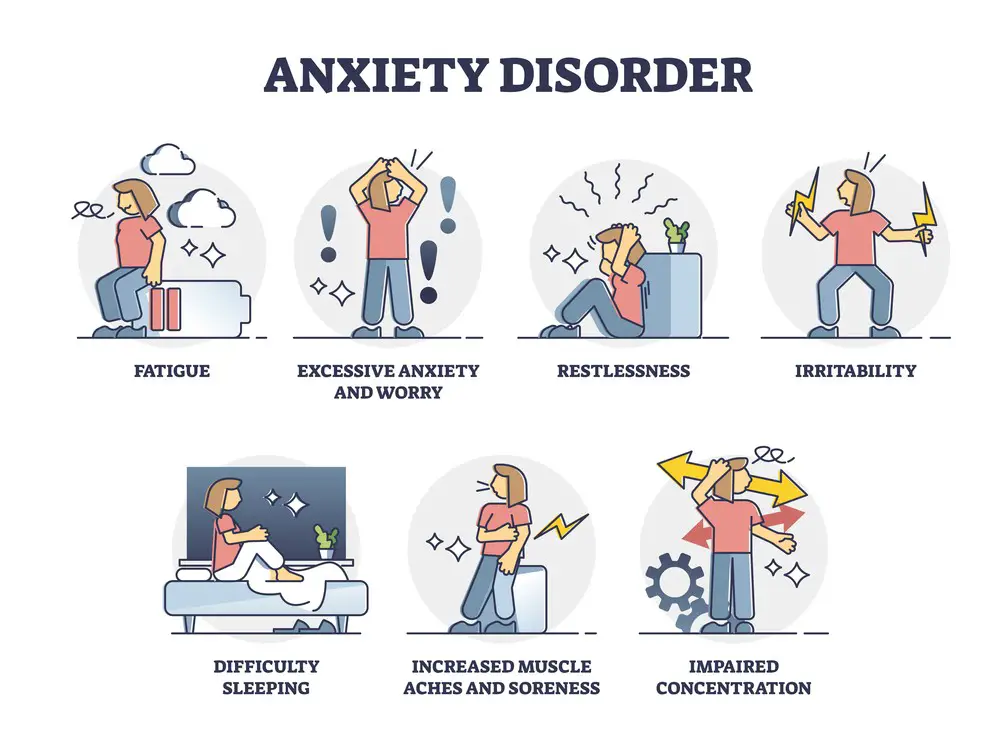
On Anxiety
Beach therapy has been shown to have positive effects on anxiety. Combining the natural surroundings and the physical activity a beach provides can help reduce anxiety. Here’s how:
- Engaging in outdoor exercise, like walking along the shoreline, can release endorphins that boost mood and decrease anxiety.
- Being in a beach environment can distract your mind from anxiety-inducing thoughts, allowing you to focus on positive aspects instead.
- The rhythmic sound of waves crashing can have a meditative effect, helping you find calm and quiet your racing thoughts.
Remember, enjoying the beach goes beyond lounging on the sand; participate in activities like swimming or beachcombing for a full, immersive experience that helps alleviate anxiety symptoms.
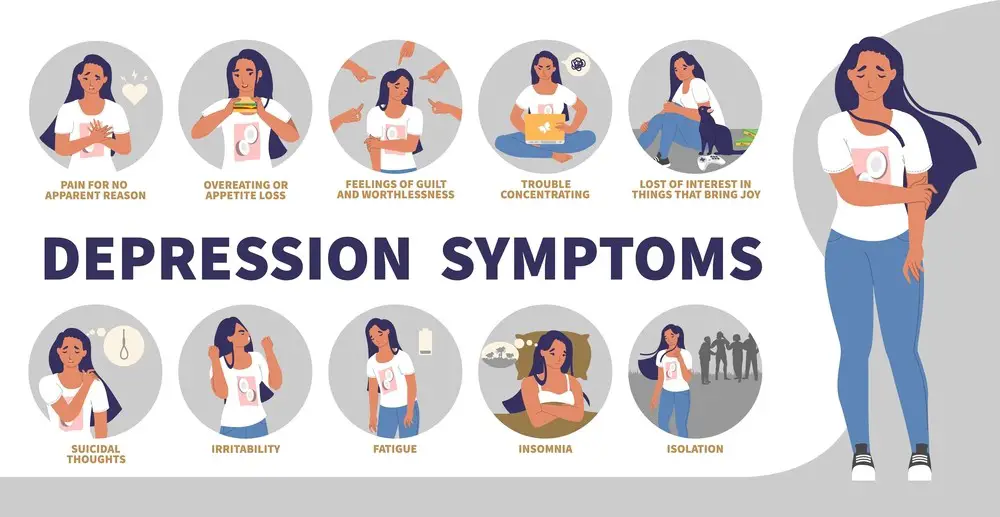
On Depression
Beach therapy can also be beneficial for combating depression. The beach’s natural elements can improve overall well-being and boost mood. Here’s how:
- Spending time outdoors and in direct sunlight can help increase serotonin levels, which regulates mood and alleviates feelings of depression.
- The negative ions found in the air near the ocean enhance mood and promote feelings of relaxation, leading to reduced depressive symptoms.
- Taking part in beach activities, like building sandcastles or playing beach sports, can shift focus away from depressive thoughts and positively engage the mind.
While beach therapy can help alleviate depressive symptoms, seeking professional guidance is important if you struggle with mental health. However, incorporating beach visits into your self-care routine may provide you with additional tools to cope with depression.
 Sounding the Alarms: Signs You Need Professional Therapy
Sounding the Alarms: Signs You Need Professional Therapy
While beach therapy can offer incredible solace, there are some signs that you might need to add professional therapy to your wellness routine:
- Persistent Sadness or Anxiety: If you’re frequently down and can’t seem to shake it off, even the ocean’s calming waves might not be enough.
- Unmanageable Stress: When stress starts affecting your health, job, or relationships, it’s a strong sign you need a professional’s input.
- Chronic Anger or Irritability: If you’re often angry and you don’t know why, this is more than just a mood—it’s a sign.
- Behavioral Changes: Significant changes in eating or sleeping habits signal that you’re not just going through a ‘phase.’
- Isolation: If you’re withdrawing from friends and family, a therapist can help you get to the issue’s root.
The Roadmap: Goals for Your Therapy
Having goals can give your therapeutic journey structure. Here are some objectives you might consider:
- Emotional Literacy: Learning to identify and articulate your feelings accurately.
- Healthy Coping Mechanisms: Replacing harmful behaviors with beneficial ones, like exercise or mindful breathing.
- Improved Relationships: Working on your communication skills to enhance your interpersonal relationships.
- Self-Esteem: Gaining a healthy level of self-worth and self-acceptance.
The Milestones: Recognizing Progress in Therapy
Therapy isn’t a quick fix—it’s a journey. Here’s how you can tell you’re making strides:
- Reduced Symptoms: Whether it’s less anxiety or fewer depressive episodes, symptom relief is a big win.
- New Perspectives: Finding different ways to look at your problems indicates your mindset changes.
- Action Plans: If you leave your sessions with actionable steps, that’s progress.
- Personal Discoveries: Gaining insight into your behavior, feelings, and responses to others means you’re growing.
While beach therapy can be an incredibly healing experience, pairing it with professional therapy can give you a comprehensive toolkit for dealing with life’s challenges. Remember, as wonderful as the beach is, there are some things that you should tackle with a trained professional by your side.
Frequently Asked Questions

What are the benefits of beach therapy?
Beach therapy offers multiple benefits for your mind, body, and soul. It’s a perfect opportunity to relax, unwind, and connect with nature, which can help boost mental well-being. Some of the benefits include:
- Improved mood and reduced stress levels
- Opportunities for physical activities like swimming or walking, which promote overall health
- Enhanced immune health from exposure to sunlight
- The calming sound of waves, which can induce a state of relaxation
How does beach therapy improve mental health?
The tranquil environment at a beach can provide a soothing atmosphere that promotes mental health. The combination of sun, sea, and sand can help reduce feelings of stress, anxiety, and depression. The peaceful surroundings enable you to take a break from daily stressors, allowing you to focus on relaxing and rejuvenating yourself mentally and physically.
What is the science behind beach therapy?
Research has shown that spending time in natural environments, like the beach, can positively influence mental health. The sound of ocean waves can promote relaxation, and sunlight exposure can increase the production of serotonin – the “feel good” hormone. Being near water also helps reduce cortisol levels, the stress hormone, improving overall well-being.
How can I practice beach therapy?
Beach therapy can be practiced in various ways, such as:
- Going for a long walk on the beach
- Practicing deep breathing or meditation while listening to the ocean waves
- Enjoying a relaxing swim or surf
- Engaging in beach yoga or stretching exercises
Remember, there’s no specific formula for beach therapy. The idea is to immerse yourself in the calming beach environment and engage in activities that you find relaxing and enjoyable.
Can beach therapy help with anxiety and stress?
Yes, beach therapy can help with managing anxiety and stress. The soothing environment of the beach, along with the calming sound of waves and exposure to natural sunlight, can help reduce cortisol levels and promote a sense of calm and relaxation. Taking time away from daily stressors and embracing the peace of the beach can be instrumental in reducing anxiety and stress.
Are there any specific beach therapy programs available?
While there may not be specific beach therapy programs everywhere, many mental health professionals and wellness retreats incorporate nature-based therapies, including beach therapy. Look for local counseling or mental health services focusing on nature-based approaches, or consider attending a wellness retreat providing beach activities to improve mental well-being.
Riding the Waves of Life: A Glimpse into Jacob Maslow’s Journey
Hey there, I’m Jacob Maslow. My life has been a whirlpool of emotional highs and lows, partly shaped by my experience with an ex-spouse battling severe narcissism. Navigating court orders, broken promises, and complete alienation from my children has been tough.
I’m no stranger to therapy; you could call me a veteran. I take Lexapro to manage my mental health and am a staunch advocate for prioritizing wellness. I find solace in taking long, introspective walks, especially by the sea—hence my firm belief in the power of beach therapy. There’s nothing like the rhythmic melody of crashing waves to clear a cluttered mind.
You’ll find me putting pen to paper (or fingers to keyboard) when I’m not out soaking up the salty air. I write extensively about navigating mental health challenges and dealing with narcissistic partners, hoping my words can be a lifeline to someone in need. I also run a legal site aimed at helping people embroiled in contentious battles similar to mine, where spouses weaponize children and violate court orders.
Through it all, I want people to know you can overcome mental health obstacles. You’re not alone, and there’s a whole ocean of possibilities for healing and growth.
This site contains affiliate links to products. We will receive a commission for purchases made through these links.


 Understanding Beach Therapy
Understanding Beach Therapy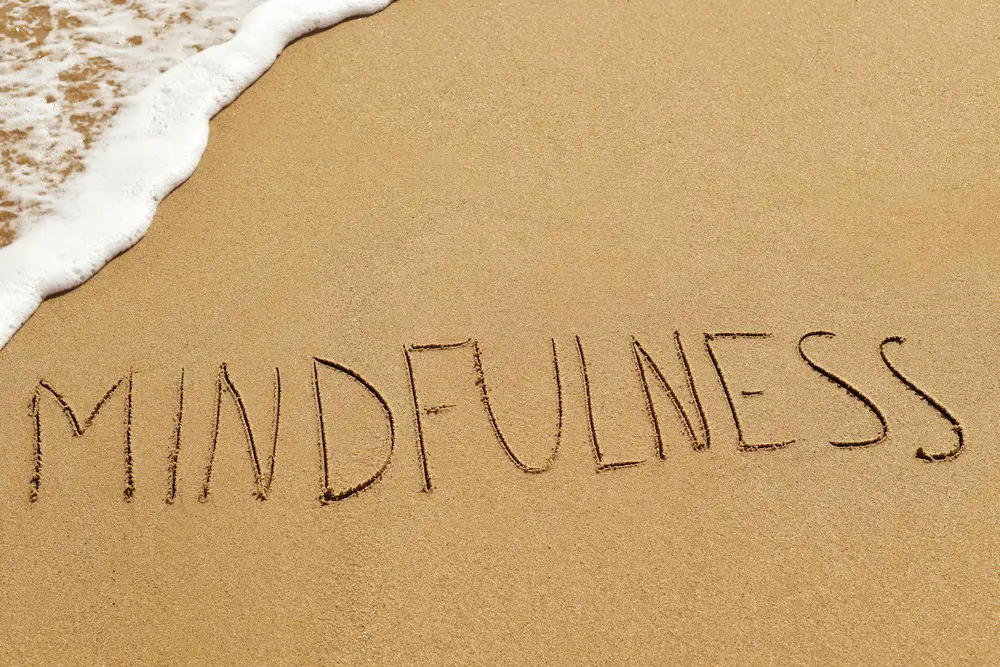 The Role of the Mind in Beach Therapy
The Role of the Mind in Beach Therapy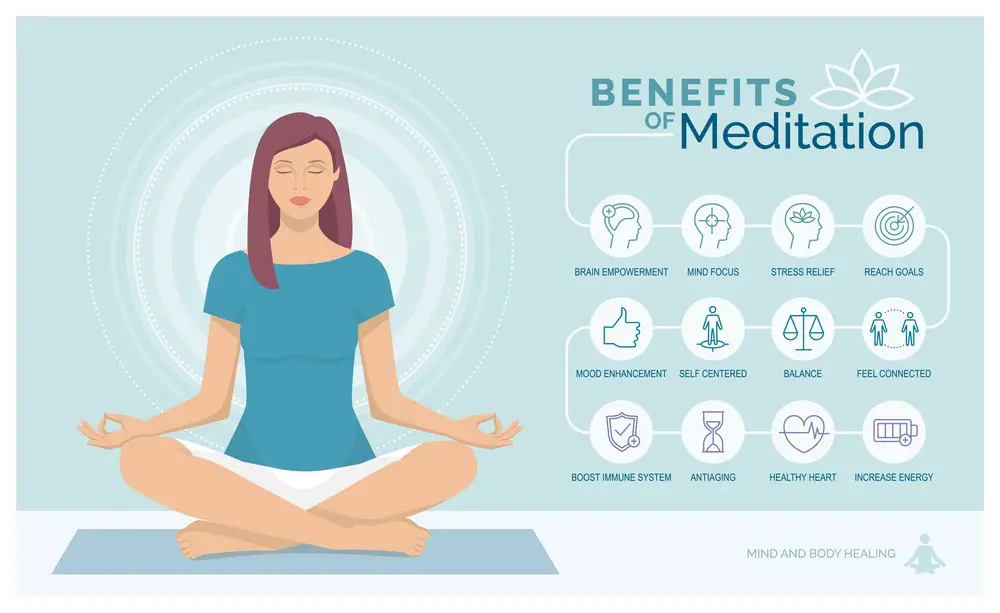 Meditation at the Beach
Meditation at the Beach Beach Therapy and Life Changes
Beach Therapy and Life Changes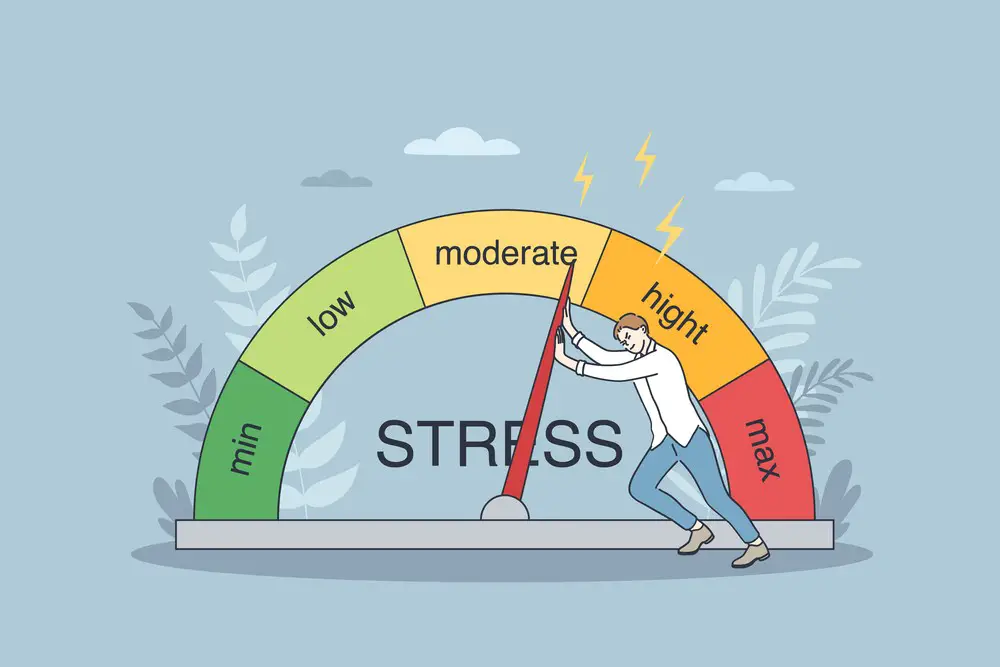 Beach Vacations for Stress Management
Beach Vacations for Stress Management Sounding the Alarms: Signs You Need Professional Therapy
Sounding the Alarms: Signs You Need Professional Therapy
